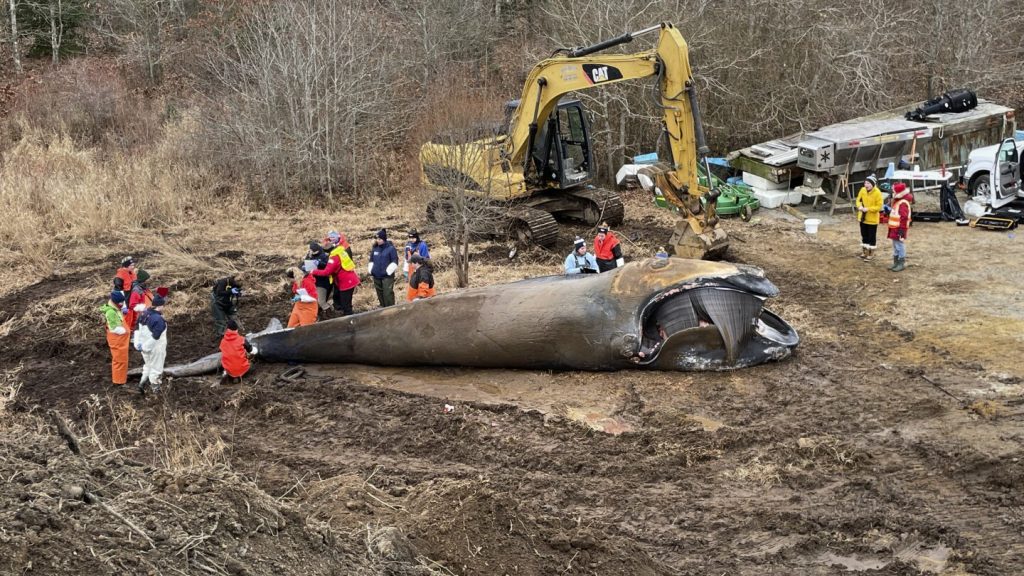The cause of death for a rare right whale found dead off Massachusetts earlier this year has been determined to be entanglement in Maine lobster fishing gear, according to federal authorities. The North Atlantic right whale was discovered dead off Martha’s Vineyard in January, and a necropsy revealed that the whale died from chronic entanglement in gear consistent with the kind of rope used in Maine’s lobster fishery. With the right whale population declining to less than 360, efforts to regulate shipping and commercial fishing along the East Coast are at the forefront of conservation efforts. The National Oceanic and Atmospheric Administration (NOAA) reported that a law enforcement investigation into the whale’s death is ongoing.
These massive creatures, which can weigh up to 150,000 pounds, are particularly vulnerable to lethal entanglement in the ropes commonly used in lobster fishing that connect lobster traps to surface buoys. Environmentalists such as Kristen Monsell, oceans legal director for the Center for Biological Diversity, have raised concerns about the impact of fishing ropes on whales and called for stricter regulations to prevent future entanglements. However, members of the industry argue that they have taken significant steps to avoid interactions with right whales and that entanglements in Maine gear are rare. The Maine Lobstermen’s Association emphasized that this incident was the first reported entanglement of a right whale in Maine lobster gear in 20 years, and the first death attributed to the fishery.
The decline in the right whale population has been a cause for alarm, with numbers falling by about 25% from 2010 to 2020. Once abundant along the East Coast, these whales were decimated during the commercial whaling era and have struggled to recover. Scientists have noted that the whales’ migration patterns have become more dangerous in recent years as their food sources shift due to warming waters. This has led the whales to stray from protected areas and increase their vulnerability to entanglements and collisions. The interconnected issues of climate change, shifting food sources, and human activities are all contributing to the challenges facing the survival of the North Atlantic right whale population.
The lobster industry in Maine is a crucial component of the state’s economy, with the seafood being a cultural icon and a major source of income. With the lobster catch in Maine valued at over $460 million at the docks last year, any changes to fishing practices could have significant economic implications. Industry representatives have emphasized the efforts made by Maine lobstermen to adapt their practices over the past 25 years to reduce the risk of entanglements. Despite these efforts, the death of the right whale has reignited the debate between environmentalists and commercial fishermen regarding the need for stricter regulations and increased protections for endangered species like the North Atlantic right whale.
Moving forward, the focus will be on finding a balance between conservation efforts and the economic interests of the fishing industry. Stricter regulations may be necessary to protect endangered species like the North Atlantic right whale, but these measures must also take into account the livelihoods of those working in the lobster industry. With the possibility of further declines in the right whale population, it is essential for all stakeholders to work together to find solutions that ensure the survival of these magnificent creatures while supporting the communities that rely on the lobster fishery for their livelihoods. The ongoing investigation into the death of the right whale will shed more light on the specific actions needed to prevent similar tragedies from occurring in the future.


